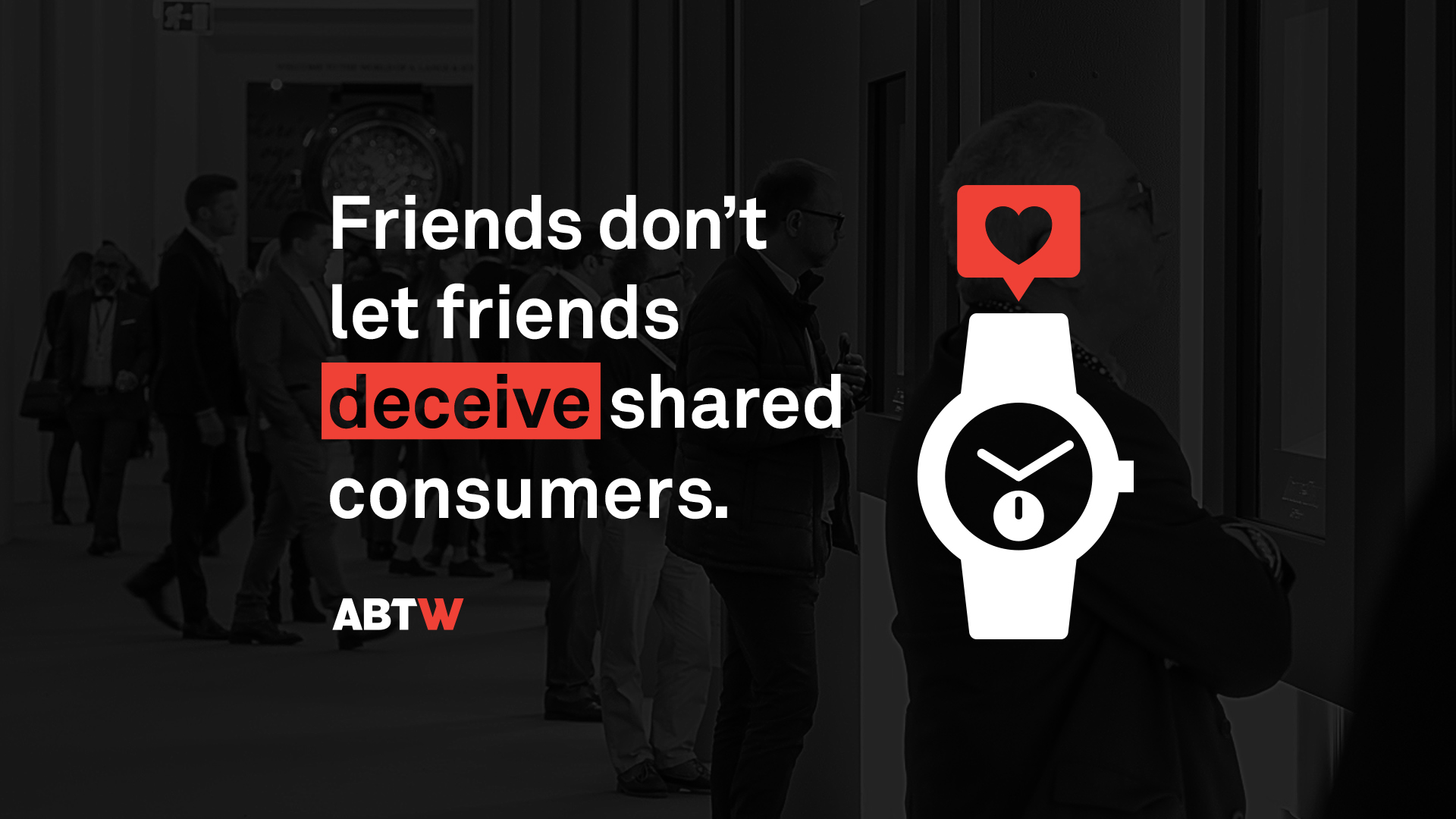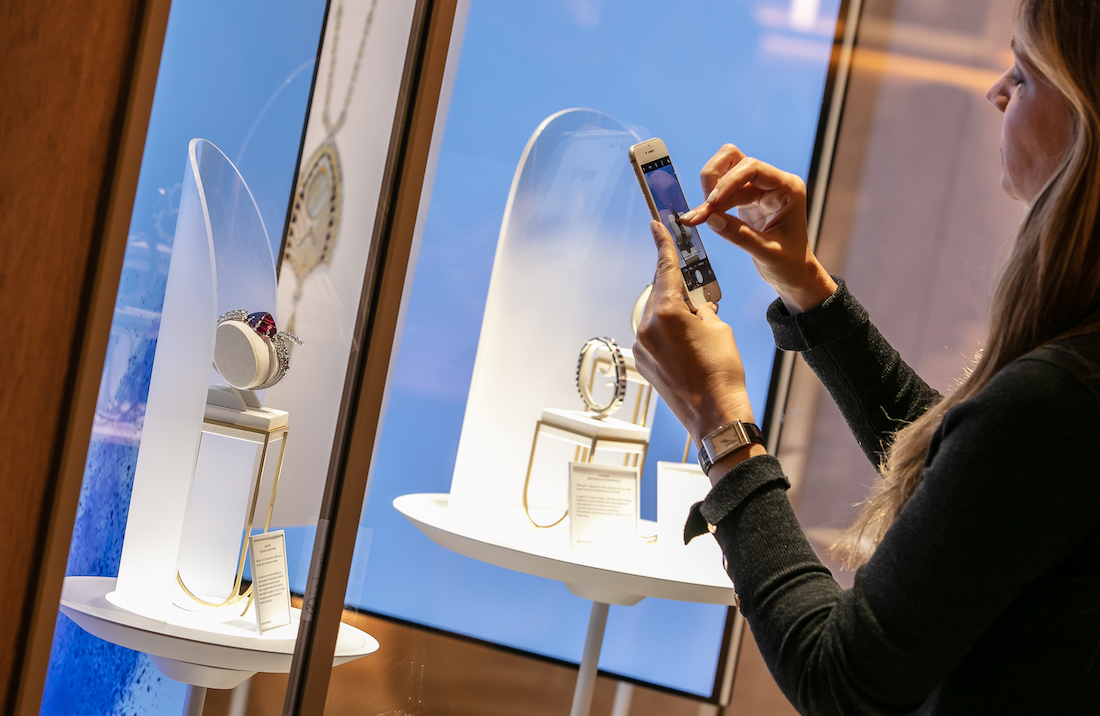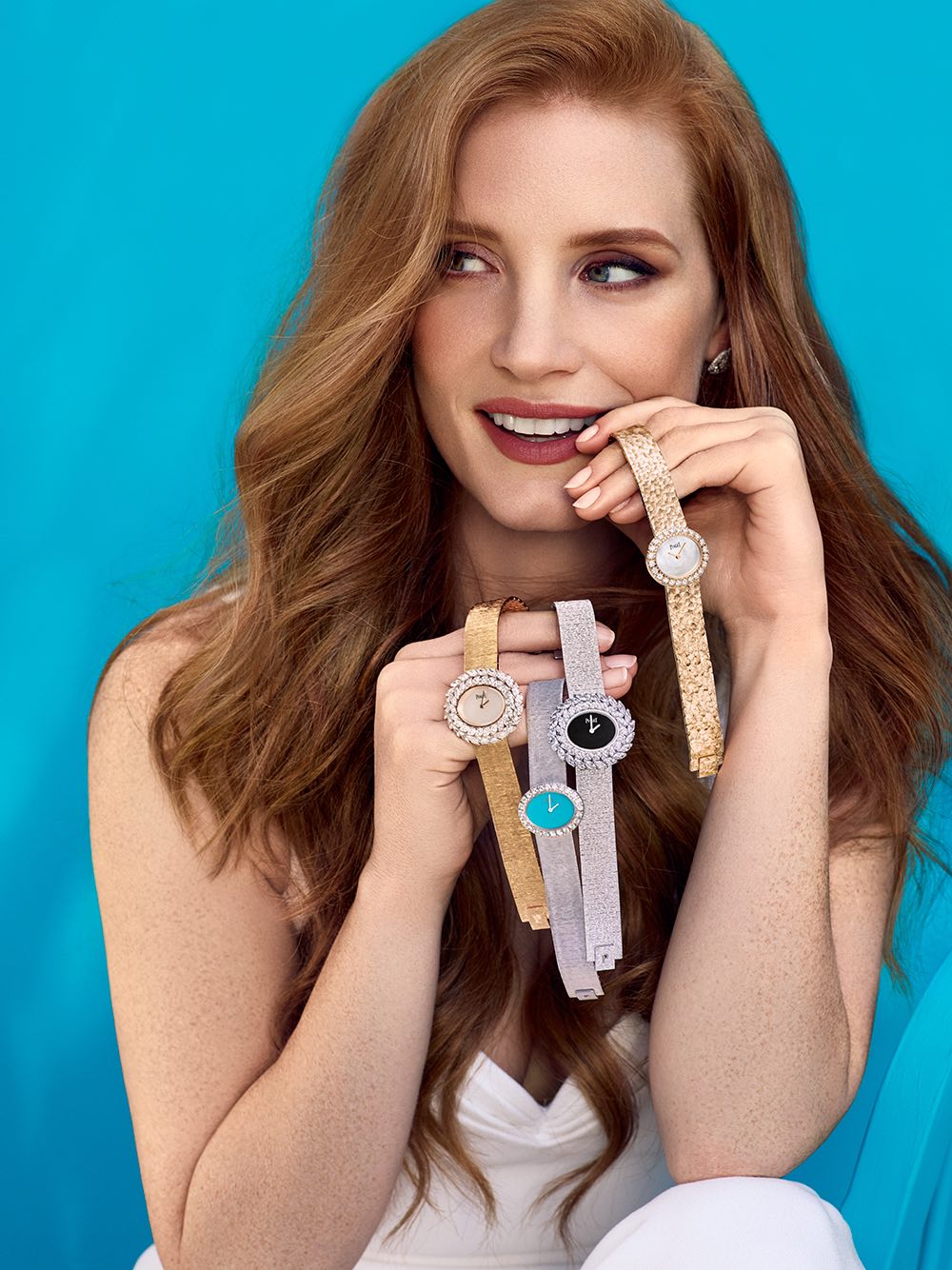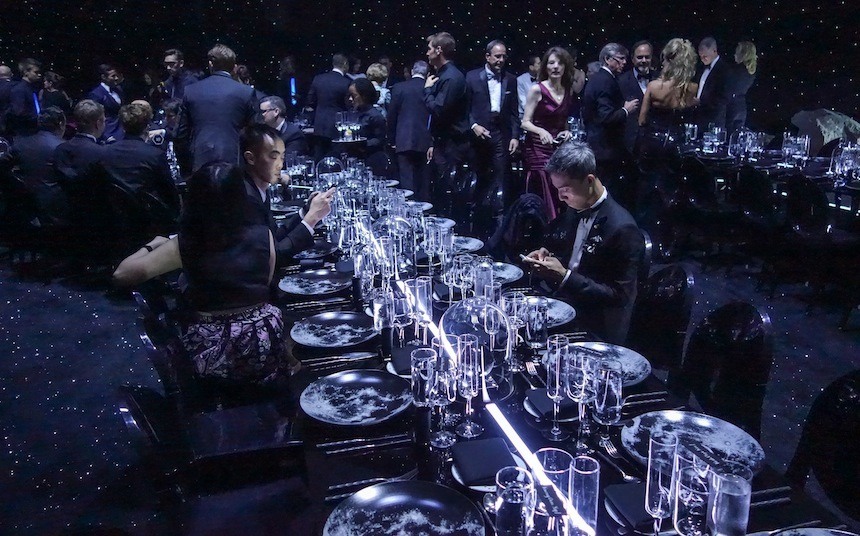
No one likes a cheater. Cheating isn’t just about ignoring rules and fairness; it’s also about trying to win without merit. In other words, cheaters haven’t earned what they got. I don’t know about you, but I value earned success. So why all the talk about cheating? Because that is what is happening right here in the watch industry space in the form of influencer marketing. Rather than earn the acceptance and acknowledgement of consumers, a growing number of watch brands are trying to buy it through deceptive means by purchasing the opinion of others. That’s cheating, and it is getting so prevalent in watch industry marketing, it’s time to finally start calling it out. Here are five key identifiers of deceptive influencer marketing, along with ways the watch community can fight back. I also discussed the topic of black hat marketing and consumer resentment in the watch space for a different audience on Forbes here.

Problem: Influencers Are Just People With Opinions, So Why Aren’t Those Opinions Authentic?
Influencer marketing is the practice of organically reaching an influential personality’s followers with some form of targeted advertising message. As a marketing concept, it’s a sound practice that’s been working for generations. While the modern definition of an “influencer” is some solo person posting pictures on Instagram, an influencer is really anyone with an opinion. This broader definition pretty much covers all of us, as the Internet, and especially social media networks, gives people with an opinion a platform to reach others. When opinionated people have a captive audience, and that audience trusts them, it means they can market the conversation they have with their followers. This can be done ethically, or not — and in some cases, influencer marketing violates the law. In the watch industry, influencers take a variety of forms, including print magazines and online media publications, as well as individuals who share content with an audience on social media platforms.
As one such media personality, I have an opinion on watches, and I use the Internet to share my opinion with others. I’m fortunate enough to have a particular perspective and level of education that gives my opinions and insight value to others. I’ve made a business producing a digital magazine in which my opinions, and those of other aBlogtoWatch team members, are complemented by corollary advertising content that sits alongside our opinions. Our opinions are not the marketing — and we make that crystal clear. In my estimation, that’s the honest way of making a living as an influencer, and we have a lot of policies at aBlogtoWatch designed to protect our opinions from crossing over into marketing. But more on that later. This discussion is about what I call “black hat marketing.” In this context, that is the practice of subversively injecting a marketing message into a statement (or piece of content) that is designed to look like an opinion. That’s lying, its cheating, and it’s behavior that you, as a consumer, need to both watch out for and actively avoid. In general, I consider all manipulative, dishonest, flat-out illegal, and general cheating marketing to be black hat marketing. The Federal Trade Commission has specific laws about influencers being required to disclose relationships with brands, and the Federal Communication Commission has similar rules. Enforcement for these agencies is an issue, but the laws and disallowed behavior are clear.

Problem: Influencer Marketing is Irresistible to Watch Brands
As is the case much of the time, the watch industry media didn’t invent influencer marketing, but it has adopted it in the contemporary era. I believe a brief discussion of how influencer marketing is manifested in the watch industry, as well as why it is so prevalent, is merited as part of making my larger point. The watch industry once had a very healthy relationship with marketing and advertising, overall. Companies that felt confident about the strengths of their brand and products would produce compelling messaging campaigns that directly spoke to consumers. These companies didn’t just proudly put their names on their products, they also signed off on their marketing messages. Time and effort was spent to determine what a relevant and engaging message was to a consumer — who, in turn, was keen to be spoken to by brands that had them in mind.
More recently, the watch industry has had a more fractured relationship with advertising, perhaps, in large part, due to the fact that as a luxury industry (as opposed to a consumer goods industry), new types of people were running the brands. The luxury industry has, for generations, also held the belief that its customers come to them, and that the brands don’t necessarily go to the consumer. It’s often a silly approach, but it is a predominant sentiment, especially among higher-end brands concerned that advertising to their core demographic will make them appear weak or desperate. I’ve never seen any evidence to suggest there is merit to this argument.
At the same time, as the above cultural shift in watch brand marketing is going on, social media marketing and participation, overall, has become an important way to reach consumers — at least some of them. Watch brands are mostly followers and rarely innovators, and they are often attracted to “get-rich-quick” schemes. For them, the promise of being able to reach consumers quickly and directly, minus the difficulty of having to design marketing materials or produce anything, is mostly likely what prompted interest in influencer marketing to begin with. This is an industry, after all, that over the last decade has heavily relied on celebrity ambassadors to generate brand awareness for new customers — as opposed to crafting carefully designed advertising messages to appeal to them.
One of the biggest needs the watch industry has right now are fresh eyes, and some of these people new to the watch industry can be turned into potential customers. Influencer marketing took root as a means for watch brands to reach audiences who were not traditionally into watches. Economically speaking, that makes sense. If you can spend money on a handful of social media influencers to reach a new population of people who aren’t into watches, it could prove a good investment. The only problem is that the brands relied on the influencers to craft the message, and the brand’s participation was intended to be more discreet. This goes along with the current unregulated “Wild West” trend of social media and what pushed some watch brand managers into the world of black hat marketing. No, the fact that “everyone is doing it” does not immediately make it okay.

Problem: How Industry Insecurity Breeds Arrogance
When watch brand marketing departments worked with influencers, as compared with traditional watch media, they noticed something interesting. Influencers not only didn’t know much about their brands, they also didn’t care. Their only interest was in producing “attractive” content that their audiences would want to engage with. In fact, too much substance was a bad thing. Watch brand marketers could dictate their exact desires and requests — which were fulfilled merely by paying a fee. In other words, if they wanted for-hire influencers to say positive things about their products, all they needed to do was fork over the asking price. Traditional media actually needed to be convinced of the merits of a product or service in order to give it opinionated editorial coverage. With a penchant for wanting complete control over the message, some watch brand managers simply could not resist the appeal of bypassing media in favor of influencers.
This approach is arrogant and fueled by insecurity. The arrogance comes in the form of the belief that consumers will buy into a message without independent validation — the end result of a lack of confidence that influencers or other media will not like their products on the merits, alone.
It is also arrogant to state that you have an active marketing department when all your efforts are intended to purchase opinions, as opposed to earning them. That’s not real marketing, it’s cheating. It also doesn’t have any momentum; it lasts only as long as you pay for opinions.
How is this manifested in the watch industry today? How is black hat marketing used to reach and persuade consumers, and why (other than the obvious ethical considerations) is it so damaging to the industry? Also, who is really to blame? Is it the hired-gun influencers or is it the short-sighted marketing managers who cannot envision how such practices not only cheapen a brand’s appeal, but also damage the way consumers perceive the entire wrist watch product category? I believe it is mostly the latter. There will always be opinions for sale as long as there is money to buy them. Marketing rules need to change at some point in order to make such conduct frowned upon or downright unlawful. On a simple level, black hat marketing, which purchases opinion without transparency, is advertising fraud.
Anyone who has spent even a few hours on social media reading and viewing videos about watches has seen content that appears to be authentic or unbiased and clearly looks as though it has an agenda behind it. At best it can be painfully difficult to determine what is and isn’t a paid opinion. Consumer skepticism is at an all-time-high because consumers can’t readily determine the difference between honest and paid opinions. The result is that consumers, by default, mistrust everything. On a regular basis, content published by aBlogtoWatch that couldn’t be further from marketing material receives snarky comments that it is “paid” for “advertising.” I was at first vexed by such sentiments, until I began to realize how uncommon watch media with traditional rules that separate advertising from editorial actually are. In a sense, I don’t blame consumers for being so cautious, given the sheer volume of bullshit they are exposed to on a daily basis. People who regularly view social media content are increasingly experiencing what I call misinformation fatigue.

Problem: Blurred Lines Between Opinion & Advertising
The reason I know that luxury watch brands routinely purchase influencer opinions (aside from actively seeing it) is because aBlogtoWatch is regularly asked to do so. In fact there are certain brands that I am proud to say will not work with aBlogtoWatch as an advertiser because we refuse to simply take money to write positive reviews about them which aren’t labeled as ads. I spend more time than I’d like to admit explaining to watch brands why taking money from them to deceptively market their message to our audience is bad idea for everyone involved. Those who don’t appreciate the merits of this argument simply do not deserve to work with us.
I’ll tell you exactly how we work with watch brand advertisers. First, we make sure that the brand and message they want to push has actual value, as well as appeals to a segment of the aBlogtowatch audience. We cover a range of products at various price levels, so understandably, not all products we cover will appeal to all audience members. The same rule naturally applies to advertising messages. aBlogtoWatch also engages in agency-style work in for which we product marketing and advertising materials for brands. Some of that is proudly displayed as the advertising that appears on aBlogtoWatch. We always strive to produce a message that communicates a strong and authentic statement about the brand or product being advertised. All of this is contained in the marketing content we make, and it has no relationship to the editorial we produce.
If you see editorial content on aBlogtoWatch about a brand that is also an advertiser, that’s because we don’t accept advertisers whose products we would not otherwise write about. Brands work with us because we explain to them that it isn’t our job to push their brand. It is our job to critically discuss products we are interested in, and it is their job to communicate their values and benefits to consumers. That’s the only way we work, and again, I’m proud to say “no” to anyone who doesn’t respect the rules of ethical advertising.

Problem: When Emotion Overtakes Evidence
As discussed above, there’s simply no reliable means of looking at a post on social media or an article on a website and determining if the author truly feels the way they do or is paid to say so. And sadly, there probably never will be. That’s why you should consider opinion on its own entirely irrelevant for the purposes of evaluating a product. That’s a tough stance for a lot of “busy” consumers to take, but it’s the only way to bullshit-proof your consumer choices.
I have an education in law, and as such strongly believe in the power of evidence. If you can’t demonstrate to me why something is cool and can only tell me that it is cool, I will not take your word at face value. Even if I trust you, I can’t be sure you even know what you’re talking about. Evidence-based argumentation is the only viable way of being sure of anything. When I review watches, I try to mix opinion with an explanation of why I feel the way I do. It doesn’t matter to me whether or not you agree wit me, so long as you understand why I feel the way I do about one particular product or another.
What comes with the influencer marketing epidemic is a simple lack of substance in what’s being shared. We’ve all seen it, content that is thin or entirely absent of substance, but rich with opinion and emotion. If you see that, just totally ignore it. If you don’t, you’re a sucker. Sorry to say it, but as a consumer, if you follow trends, people, or products merely because they appear popular and not because of anything else — I’d wager you aren’t making good consumer decisions very often.
If you as a consumer find timepieces as a category too complex to understand and need to rely on an influencer to make decision for you – then you have no business buying a high-end watch. Buy what you understand and are ready for. Don’t buy something just because you feel like it is a hot item. That’s the fastest way to feeling like a chump, or at the least being humiliated into spending far too much money for something you don’t understand. Best case scenario is that you don’t get ripped off.
Undoubtedly, in my fight against lazy consumer behavior, only a fraction of total consumers out there will listen to me, which is fine, because the educated consumers will agree with me. I’m particularly galvanized about this topic, because I believe influencer marketing has made serious damage to the industry I call home. Watch brands taking unwise and unethical shortcuts have rapidly faced increased consumer backlash. Moreso, I firmly believe that watch marketers who have no qualms about boldly lying to consumers (while working with influencers who have no qualms about boldly lying to consumers) are ruining it for ethical brands who do not participate in that behavior.
Think about it, someone just discovering watches will sooner than later find some type of paid opinion marketing that isn’t cleverly deceptive enough to hide its true nature. That will not only sully their opinion of the brand name (usually proud historic houses whose accolades vastly extend past current managers), but will also cause them to distrust information about other genuinely honest brands. This is exactly what has happened now as evidenced by the sheer level of skepticism consumers have when viewing most all media. It also makes quality watch brands fearful of marketing at all – held back by the worry that if they actively market and start to get more positive sentiment and attention – consumers will think honest opinions are paid ones.
I know for a fact that this is happening because I speak with numerous marketing managers who approach conversations about advertising with initial hesitation. Some even feel that if they have otherwise quality advertising in the same vicinity as editorial – readers will suspect the editorial of being sponsored. This effects quality watch media, consumers, and brands alike. Even just a small number of brands who welcome deceptive marketing practices and their ensuring hired-gun influencers can have a devastating effect on other companies who wish to market the honest and effective way.
As a consumer you have a right to not trust anyone but yourself. Do yourself a favor and educate yourself as much as possible on a product category (like watches) so that you can make you own individual opinion on those watches. Use quality, unbiased media like aBlogtoWatch to gather evidence that supports the opinions your own tastes and experience will naturally lead you to. And never (ever) let anyone make you feel like you need to purchase a watch because they say it is cool, an investment, a collector’s item, or anything aside from a thoughtful argument related to merit supported by evidence.

The First Step: Shame Insecure Followers & Celebrate Confident Consumers
The influencer problem obviously can’t be solved overnight, but I’ll conclude by taking the first step: shaming some people. Probably not as deeply as I should. I’m going to make a distinction between the two types of watch consumers out there. I’ve discussed this dynamic before – principally in articles such as “Are You Being Influenced As A Watch Consumer?” This discussion is relevant because it explains why so many people are interested in being influenced and why to a degree deceptive watch marketing works. Influencer marketing primarily works on insecure consumers. These are people who want to appear as though they are educated watch enthusiasts when in fact they lack sufficient knowledge to make up their own minds about what watches to buy, and are thus easy prey for black hat marketing techniques designed to make them feel even more insecure about what they don’t have. It’s particularly sad, because these people might have begun their journey seeking out watch media for honest advice on how to choose a watch, and were ultimately left feeling even more insecure after discovering a great number of biased reviews touting purportedly “must-have” watches.
Some of these watches are anything but “must-have,” and are often priced to yield unethical profits, destined for the wrists of anyone but actual watch-lovers. My personal rule is that, if a lot of people are hyping a watch, thereby creating a surge in popularity, I just walk the other way. There are a number of great watches out there, with staggering volumes of availability. If a watch you love isn’t available, then you can easily look elsewhere for something else. Never pine over something that just wants your money — especially if it’s only because you can’t immediately have it. Watches that appeal to this “you can’t have it” attitude are marketing directly to your insecurity. Don’t be an insecure consumer. Be a confident one.
Confident consumers buy what they like. They do what they like. We’ve all met them, and most of us respect them. Confident consumers are also influencers — and they are the people you can get inspiration from by seeing how they don’t follow trends or copy the wish lists of others. If you come across someone like this who appears to be in bed with a brand, just look the other way. Or at the least take what they say with a grain of salt.

Looking to the Future: The Recipe For A Healthy Watch Collector
Remember that I wrote how watches make the best trophies to demonstrate something distinctive about your personality? This means they should represent your personality, alone, and not anyone else’s. When I see someone entering a room with a watch they hope other people will notice because it is supposed to be popular, I just feel bad for the person. That guy isn’t interested in what is on his wrist, he’s interested in getting approval from peers. That’s not a watch-lover or a collector. That’s just a guy who needs a friend.
Managers in the watch industry need to curtail their current infatuation with deceptive influencer marketing to these insecure personality types, because it is quickly alienating many passionate fans, while hurting their colleagues’ brands. If the only way you can sell your products is by buying opinions and lying about it at the same time, then you don’t deserve consumer dollars. If you want credible influencers to promote your products, then you’d better earn their respect though evidence and examples. I consider myself one of those gatekeepers, and I say to watch brands, “If you want to convince aBlogtoWatch’s audience to like your products, then you need to convince me first.”
